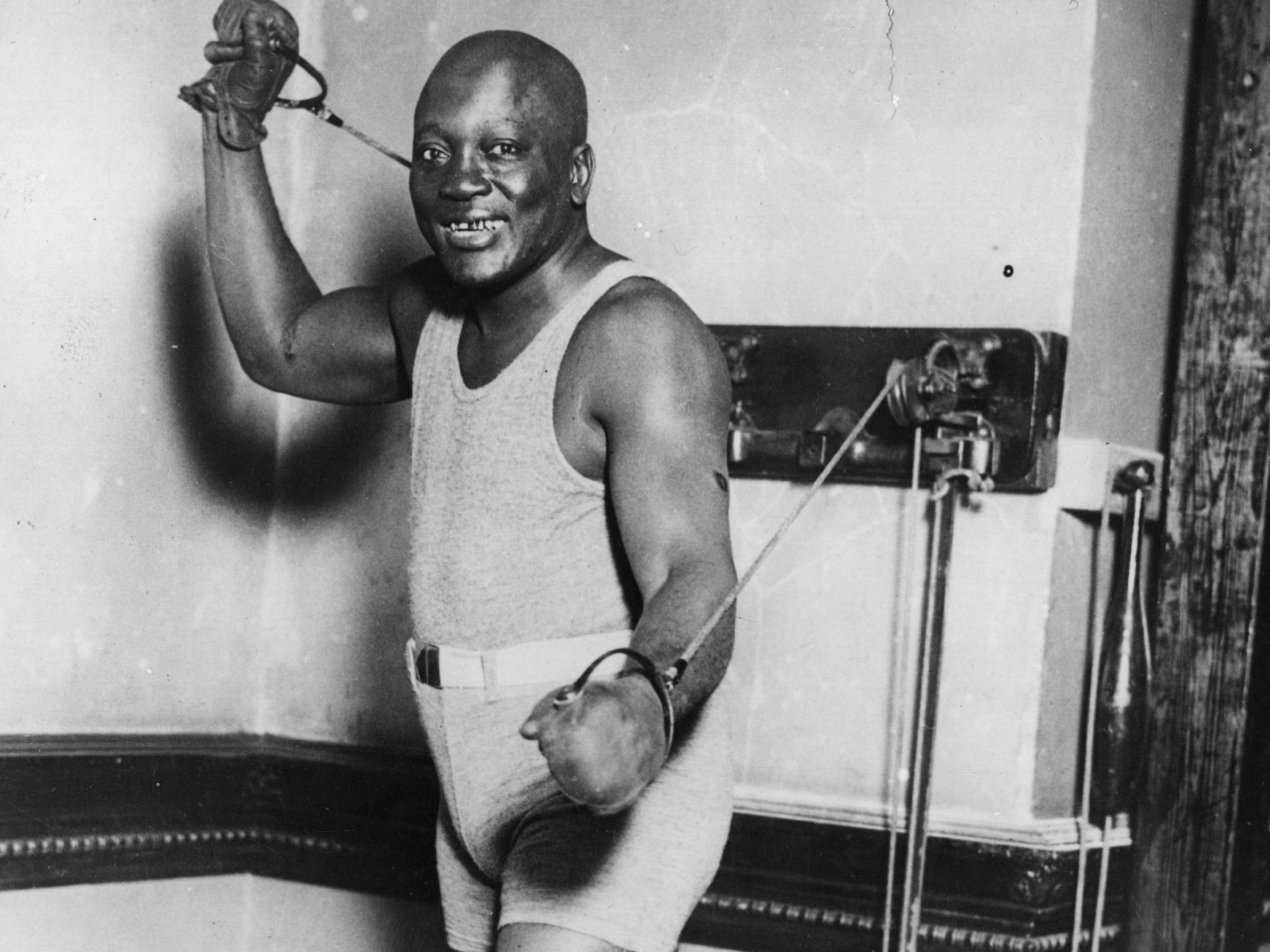Jack Johnson: Donald Trump considering 'full pardon' of black boxer convicted by all-white jury in 1913
Champion was found guilty for 'transporting a woman across state lines for immoral purposes'

Donald Trump said he is considering pardoning a black boxer who had been convicted by all-white jury of accompanying a white woman across state lines more than 100 years ago.
Mr Trump tweeted that Sylvester Stallone, the actor and writer famous for the boxing movie franchise “Rocky,” had called him and told the story of how Jack Johnson, the sport’s first black heavyweight champion, was found guilty in 1913 of violating the Mann Act, which forbade black men from transporting women across state lines for “immoral” purposes.
The president, who can offer clemency for federal crimes, tweeted: “His trials and tribulations were great, his life complex and controversial. Others have looked at this over the years, most thought it would be done, but yes, I am considering a Full Pardon!”
Johnson’s life was portrayed in the 1970 film “The Great White Hope” starring James Earl Jones and documentarian Ken Burns’ 2004 film “Unforgivable Blackness: The Rise and Fall of Jack Johnson”.
Though he died in 1946 in an car crash, Johnson’s great-great niece Linda Haywood has been pressing the president for a pardon.
Senator John McCain and former senator Harry Reid have pushed for the legendary pugilist’s pardoning. Mr McCain previously said Johnson “was a boxing legend and pioneer whose career and reputation were ruined by a racially charged conviction more than a century ago”.
“Johnson’s imprisonment forced him into the shadows of bigotry and prejudice, and continues to stand as a stain on our national honour,” Mr McCain said.
At a time when black and white men rarely fought in the same ring in public, Johnson defeated boxer Tommy Burns in 1908 for the heavyweight title and flaunted his mixed-race relationships. Johnson, whose parents were former slaves, had drawn hatred as he defeated several more white fighters – including “great white hope” and undefeated fighter James J Jeffries in 1910.
However, his life of lavish spending and – according to many in both the African-American community and white America – not knowing his “place” in Jim Crow-era society, caught up with him after a time. In the wake of his conviction, Johnson fled the US to Canada and then France before returning to the US seven years later. He served a year in federal prison before being released in 1921.
Officially the policy of the US Department of Justice states that “processing posthumous pardon petitions is grounded in the belief that the time of the officials involved in the clemency process is better spent on the pardon and commutation requests of living persons”.
Posthumous pardons are not unheard of, however. Former president Bill Clinton pardoned Henry O Flipper, the first African-American officer to lead the Buffalo Soldiers of the 10th Cavalry Regiment during the Civil War who had been framed for embezzlement.
Subscribe to Independent Premium to bookmark this article
Want to bookmark your favourite articles and stories to read or reference later? Start your Independent Premium subscription today.

Join our commenting forum
Join thought-provoking conversations, follow other Independent readers and see their replies